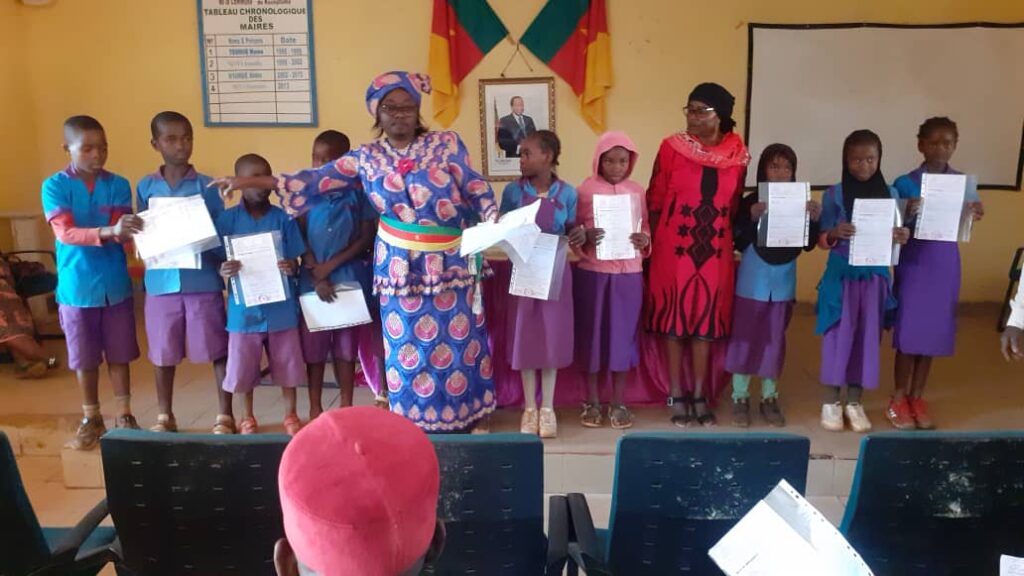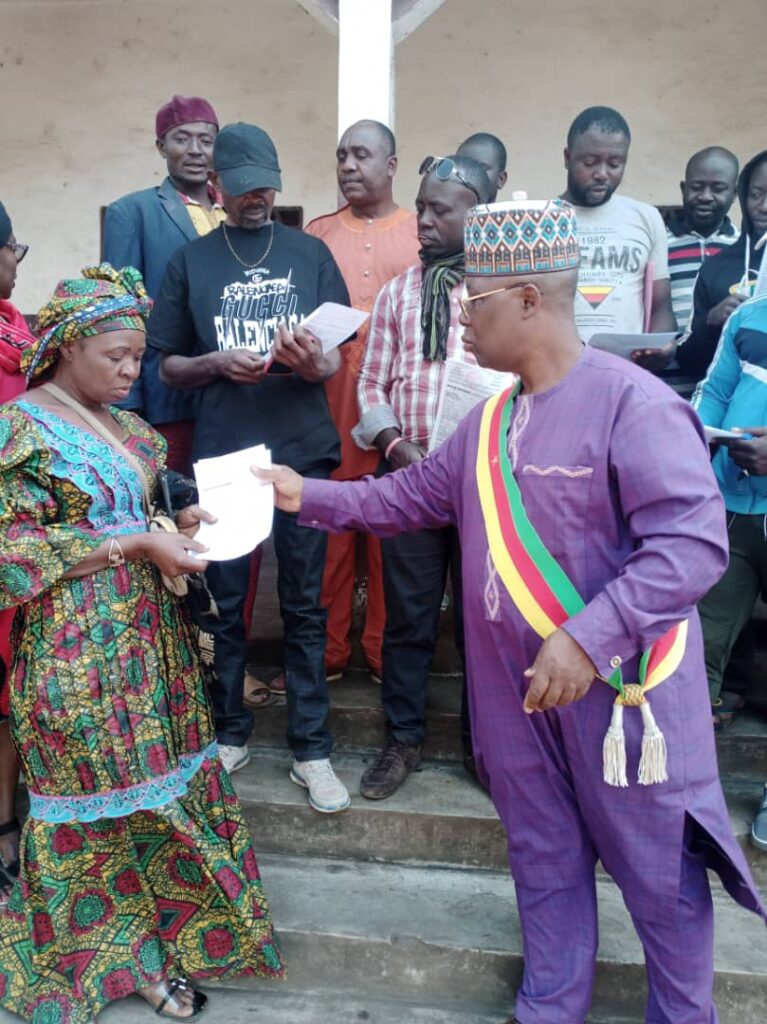
As part of AFJN’s Just Governance program, AFJN organized a mobile court on August 16, 2023, in partnership with the First Instance Court in Foumbot and the Justice and Peace Commission of the Diocese of Bafoussam. This initiative focused on providing birth certificates to school-age children who lacked this essential document. The mobile court facilitated the issuance of birth certificates to over 301 children, representing 147 households, formally registering them in the civil registry. This milestone marked the first time these children possessed an official document, enabling them to apply for a national identity card, a crucial proof of Cameroonian nationality. By obtaining this documentation, the risk of statelessness among these children has significantly decreased, and they can now access essential public services, including education and healthcare, paving the way for a brighter future.
Challenges in Obtaining Birth Certificates

In Cameroon, raising awareness on birth registration is particularly important in areas far removed from the urban areas. Registration rates are considerably lower in remote areas and children risk growing up undocumented. Factors like ignorance, negligence, poverty, and corruption hinder families from obtaining birth certificates, leading to severe consequences, including restricted movement, imprisonment and bribery, school dropout, and limited access to government services.
Upholding Integrity in Birth Certificate Issuance
AFJN’s initiative addresses these challenges, ensuring that children receive their rightful documents and access essential services. Driven by our Catholic identity, AFJN provides services without seeking monetary compensation from families or engaging in bribery with officials. To do so, AFJN avoids shortcuts and bribes by meticulously verifying each document before submission, guaranteeing that the documents are legally sound. After receiving the applications, a list of the selected candidates is publicly posted for 30 days. This allows families to verify accuracy of information and the public to contest any application. After this period, no appeal can be granted for any contestations, ensuring a fair and efficient process. This thorough approach earns the court’s recognition and respect, reinforcing AFJN’s reputation and ensuring access to transformative justice.
Overcoming Legal Obstacles through Stakeholder Flexibility

On the day of the mobile court, the presiding judge adapted to changing circumstances, deciding to hold a separate hearing for Kouoptamo cases in Foumbot due to security concerns and a directive from the Minister of Justice. This ensured that birth certificates issued would not be nullified. Recognizing that efficient collaboration ensures success, after the mobile court session, AFJN worked closely with the First Instance Court in Foumbot to ensure necessary documents were signed and AFJN representative was authorized to sign applications on behalf of parents, and to forward certified copies of the ruling to the Municipality for birth certificate issuance. This ensured a reduction in cost and prevention of corruption. This collaborative effort demonstrated remarkable flexibility and selflessness among stakeholders, ultimately leading to the successful issuance of birth certificates.
Conclusion
AFJN’s mobile court initiative stands as a transformative model that tackles the underlying structure, addressing families’ multifaceted challenges in obtaining birth certificates. This collaborative effort brings justice closer to the people, demonstrating a commitment to fairness, efficiency, and transparency in the process. This initiative serves as an opportunity that is empowering families to secure essential documentation for their children and pave the way for a brighter future.
